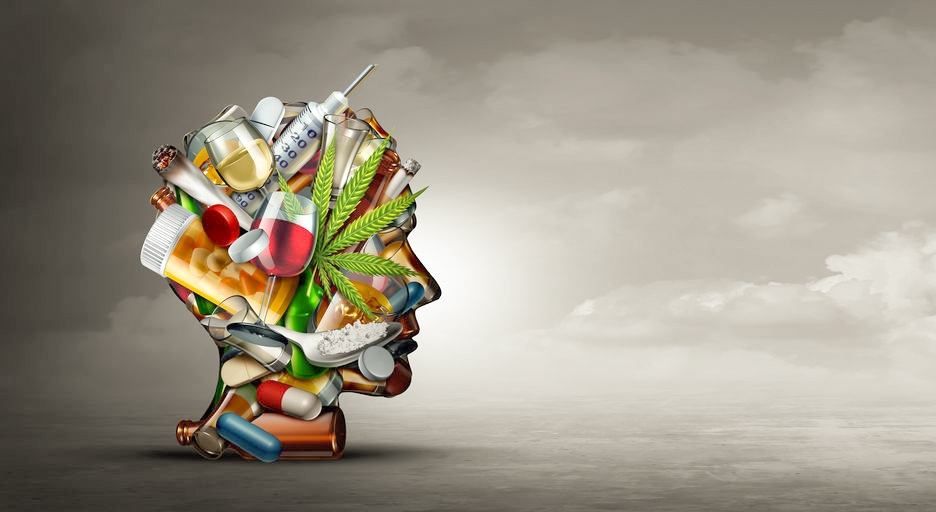Struggling with substance dependency or addiction?
If you use opioid drugs or other substances and feel you may have developed a dependency or addiction, it’s important for you to know the dangers and how you can reduce your risk of brain injury or death.
Dangers of Substance Misuse
At least 20 percent of teens and adults hospitalized for traumatic brain injury were under the influence of drugs or alcohol at the time of injury. Among patients who require inpatient rehab for brain injury, over 60 percent have a prior history of substance misuse.
Using drugs and alcohol increases likelihood of dangerous accidents such as falls and vehicle crashes by affecting cognition, impulsivity, decision making, balance and coordination. Substance use also increases the risk of being injured in an assault, domestic violence or criminal situation. If a person becomes homeless or imprisoned, their chances of injury are even greater.
Overdosing on opioid drugs (such as heroin, Percocet and fentanyl) cuts off oxygen to the brain, causing anoxic or hypoxic brain injury or death. Many illicit drugs have been linked to strokes, especially in young people. Drug and alcohol use can also worsen symptoms of depression and increase suicidal thoughts and behavior.
Quitting now will reduce your risk
If you feel you’ve developed a dependency or addiction to one or more substances, the best way to reduce your risk of death or injury is to quit. This is not always easy, as the brain and body have learned to depend on the substances. Withdrawal is different for each person and substance, but can include illness, fatigue, insomnia, anxiety, depression and more. In extreme cases, withdrawal can even lead to death.
If you want to stop using substances, there are detox programs to help you through the withdrawal process. If you use opioids, there are long-term maintenance medications that can reduce cravings and ease withdrawal symptoms. https://www.samhsa.gov/ is a great place to find resources and treatment facilities.
After detox, long-term recovery support is available through inpatient care, residential services, outpatient programs, group therapy and individual counseling. Some people find that being involved in a 12-Step group like Alcoholics Anonymous is helpful, and there are other free support group options like Celebrate Recovery (faith based) and SMART Recovery (science based). There are many options to choose from, but the most important thing is that it works for YOU.
If quitting isn’t an option
If you’re not interested in quitting, are not ready, or it’s just not an option right now, the next best thing you can do is learn about harm reduction, to reduce your chances of injury or death from substance use.
- Never drive while under the influence, or get into a car with a driver who is.
- Don’t climb up high or participate in risky behaviors when using drugs or alcohol.
- Don’t handle firearms when using, or become involved with criminal activity.
- Maintain relationships with friends and family if possible, don’t isolate yourself.
- If you find yourself in a violent situation, help is available regardless of drug use.
- Pay attention to the amount you use and test your supply for dangerous substances.
- If you use needles, consider switching to a less harmful method of administration.
- Don’t share needles, pipes or other personal items.
If you use IV (needle) drugs, using new, sterile needles helps protect you from:
- Hepatitis B & C
- HIV / AIDS
- Abscesses
- Skin infections
- Blown-out veins
If you use opioid drugs (heroin, Percocet, fentanyl):
- Never use alone. If you have an overdose, brain injury can occur within 4 minutes.
- If you must, call the Never Use Alone hotline at (800) 484-3731 and they will stay on the line.
- Keep Naloxone (Narcan) and encourage the people around you to learn when and how to use it.
- Be aware of your tolerance level. Tolerance can decrease during a period of abstinence or decreased use. If you then return to a higher dose, this could cause an overdose.
- If you have had an overdose in the past, know that you are at an increased risk for another.
- Start low and go slow. You can always use more, you can never use less.
- Test your supply, especially if you are getting it from an untrusted source.
- Connect with your local harm reduction group for supplies and information. (Sonoran Prevention Works is the largest in Arizona: https://spwaz.org/)
If you use any kind of opioid drug, whether prescription or illicit, the Brain Injury Alliance of Arizona can provide you with Naloxone (Narcan) kits for use in case of overdose. We can also provide medication lock boxes to keep opioid prescriptions, MAT medications or controlled substances so that they are not taken by children or by anyone else who could be harmed. Both of these items are available at no cost – while supplies last. Contact us to place a request.
Family Support for Addiction
- Employment Training & Volunteer Opportunities at Re:Start! ReSale Shop
- Interpersonal Violence Navigator for Those Recovering from Violent Encounters
- Peer Support for Veterans & Military Family
- Referrals for Opioid-Alternative Pain Management
- Statewide Outreach & Training for Addiction Centers
- Statewide Brain Injury Survivor Support Groups
- Virtual Support Group for Families Dealing with Addiction and Brain Injury
- Training on Addiction & Cognitive Impairment for Professionals, Family Members, & Survivors, with CEUs Available
- Transportation Passes in Tucson & Phoenix
- Virtual Educational Opportunities
Additional Resources
 Loading...
Loading...



Brain Injury Alliance of Arizona
5025 E. Washington St, Ste 106
Phoenix, Arizona 85034
QCO CODE: 22360
EIN 94-2937165
CALL
(602) 508-8024
HELP LINE
(888) 500-9165
Fax (602) 508-8285
FOLLOW US
contact us
privacy policy
terms & conditions


